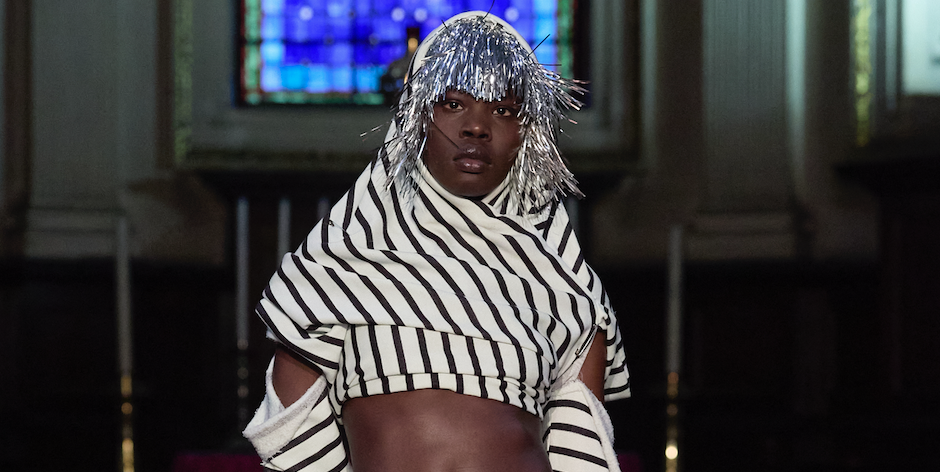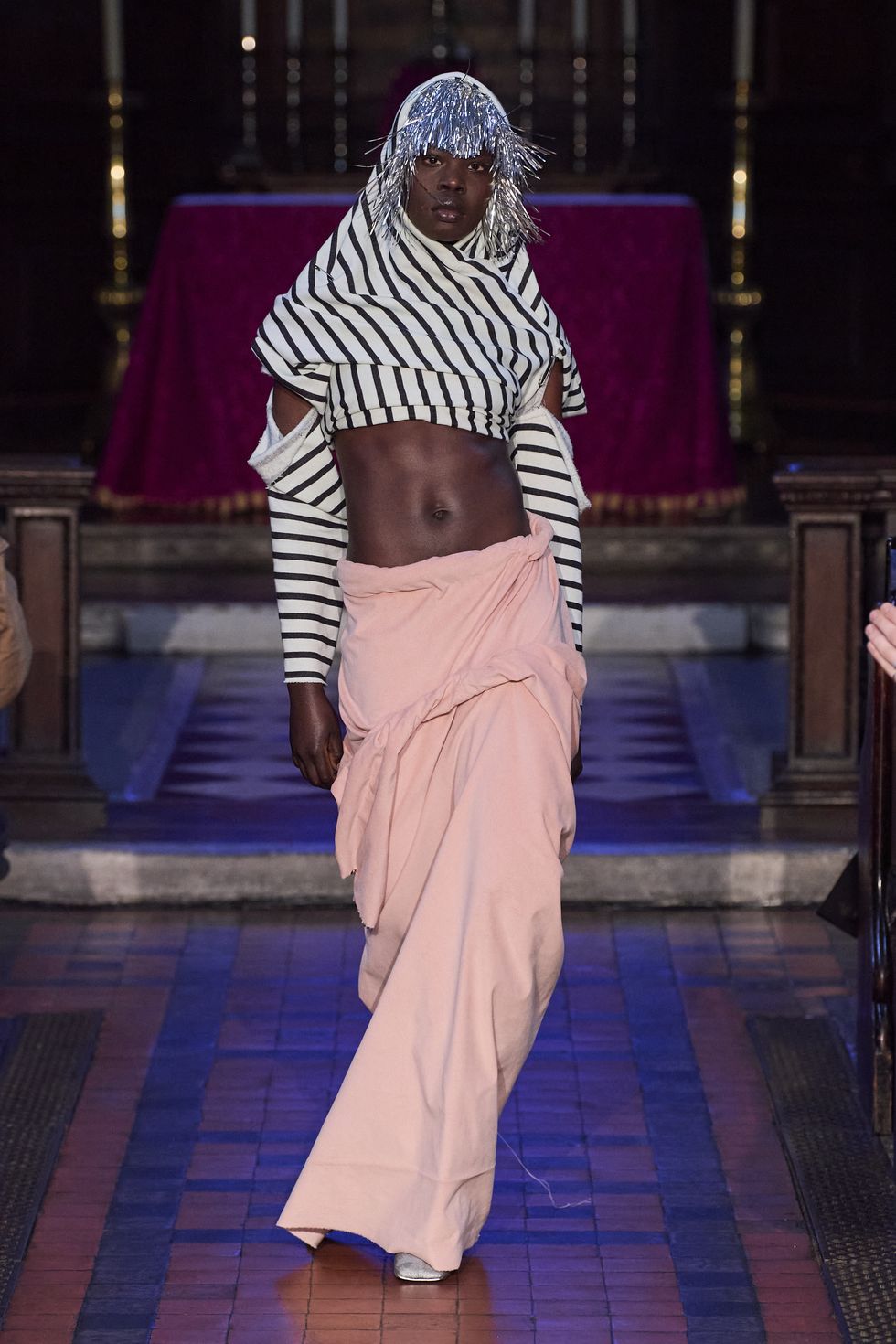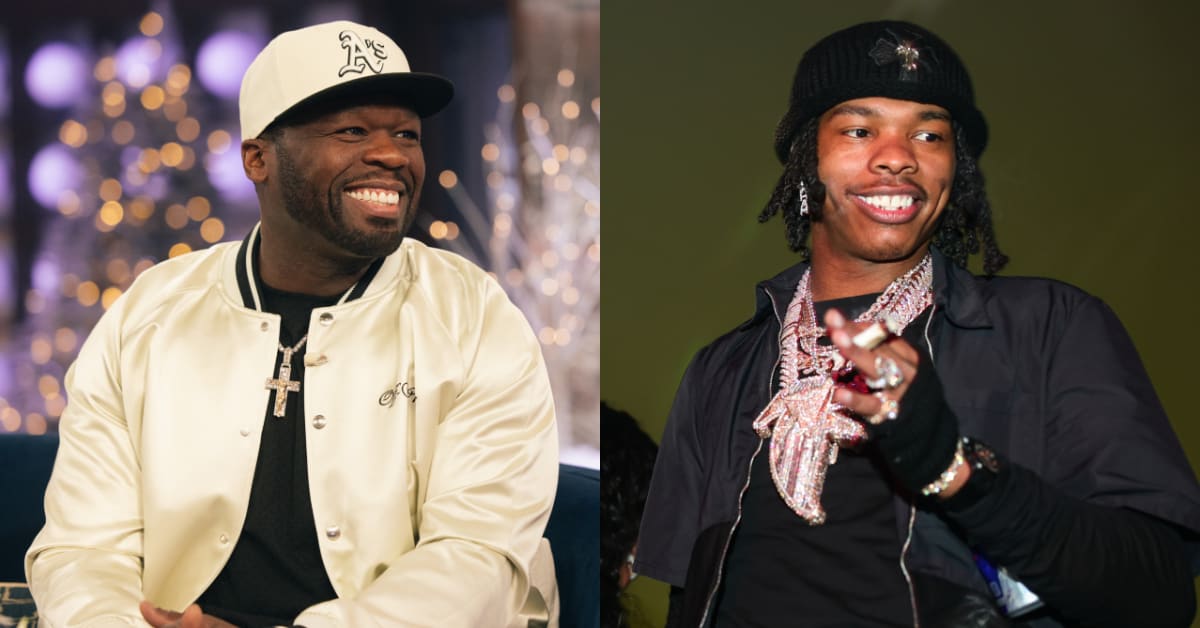Fashion
Get to Know Rihanna’s Favorite Designer Jawara Alleyne

A couple of weeks ago, the London-based, Jamaica–born designer Jawara Alleyne got the endorsement of a lifetime: When Interview editor-in-chief Mel Ottenberg asked Rihanna what she was wearing the day of her April cover shoot for the magazine, the Barbadian megastar—who’s been front and center on Alleyne’s mood boards over the years—replied: “This is by Jawara Alleyne, who’s my new favorite designer because I’m struggling with tops.”
“It’s the honor of the century,” Alleyne tells me just a few days after the Interview article comes out. Rihanna had been photographed wearing his deconstructed and safety-pin adorned shirts in the months prior, but Alleyne never dreamed she’d actually call him out by name. “When I was growing up, I would always look to her as a source of inspiration, because she comes from a place that looks like the place I came from, and her story is not dissimilar to mine.”
Alleyne’s story began in Jamaica, where he was born; he and his family moved to the Cayman Islands when he was 12. He’d always been interested in fashion, but his love of design blossomed during his teenage years. Alleyne staged his first runway show at 16, through a local fashion program, and afterward continued to craft his own collections from home. But he aspired to move to Europe and join the ranks of heroes like Martin Margiela, Karl Lagerfeld, and Alber Elbaz of Lanvin. The fashion competitions he participated in as a teen were focused on design challenges anchored in local culture. At the time, Alleyne felt that stifled his creativity, and yearned to make “really glorious fashion.”
The designer eventually left home at 19 after completing a business education program in the Caymans, and moved to the U.K. to study at the London College of Fashion. His second year there, he scored an internship with Peter Pilotto, where he worked for a couple of years after graduating while he completed his MA in menswear at Central Saint Martins. Alleyne was placed in the studio at Peter Pilotto and credits that position with helping him gain a real understanding of a brand’s infrastructure, from business to production to marketing and, of course, design. “You can have really great ideas, but unless you find a good way to manage your process, the creativity, and the commerce, then your brand is never really going to last too long,” he says. “But when you’re starting out, you don’t really have the capacity to do that. You’re doing everything yourself.”
Much of Alleyne’s design ethos stems from the COVID-19 pandemic. He graduated from Central Saint Martins in the spring of 2020, and after getting some media attention for his graduation collection, went to work on his first full offering as an independent designer. Only, because of the shutdowns, Alleyne didn’t have access to the same materials, team members, and studio spaces he’d worked with in school. So he adopted a DIY approach that brought him back to his time as a young, scrappy aspiring designer.
“I think Covid was a blessing in disguise,” he says. “It forced me to really rely on what actually came to me, instead of trying to prove that I know how to do fashion in the way that I thought it needed to be done.” Of his debut line, he recalls: “I just got a bunch of old T-shirts that I had lying around, some jeans, trousers, and stuff from the charity shop. And I went to Nigeria with a suitcase, scissors, and safety pins, and I just made the collection in the hotel room.”
In the years since, Alleyne has been slowly but steadily building a brand based on, as he puts it, “the honesty of being able to create when you have access to nothing.” He is currently direct-to-consumer, with some niche stockists like Machine-A and APOC. The clothes for sale right now on the Jawara Alleyne website include a black-and-white striped painted button-down, an ombré knit maxi skirt, rainbow-hued beaded jewelry, and made-to-order tops like the ones Rihanna has worn. Alleyne has remained under the radar, but his Fall 2024 collection, shown at London Fashion Week, marked a turning point.
Staged inside the chapel of St. Mary le Strand church in London’s Holborn neighborhood, Alleyne’s show was about the aftermath of one of the Caribbean’s seasonal hurricane (which occur in the fall), and its effects on the people and landscapes of his second home in the Cayman Islands. In the collection’s twisted and cutout tops and draped and folded skirts, Alleyne brought to life the feeling of things thrown all about by torrential rains and terrifying wind. The beautifully chaotic clothes looked like they were picked up off the ground or out of broken, splintered drawers and wrapped around bodies taking cover. “I wanted to think about a time when that feeling of coziness and community actually comes into play within a Caribbean story. And that feeling of a need for protection, for layering up.” He continues,“It’s also about the importance of circularity within the Caribbean mindset. When I was growing up, living in a place where you have a hurricane every year that comes and basically destroys the whole island, it gives you a different point of view when it comes to materialism. Nothing ever gets wasted, and things are always being put back into a cycle.”
He is hard at work on his next collection, and on the brand as a whole. (He is building out a team and focusing on wholesale in the coming months.) In the fall, Alleyne will return to London Fashion Week; and in November, he’s doing a show in the Caymans to celebrate an exhibition of his work that will be housed at the National Gallery of the Cayman Islands. His aim, he says, is to continue evolving the narrative from the fall show and to create a label that leads with craft, storytelling, and humanity, as well as one that embodies the resilient, singular attitude of his home.
“There’s a rebellious energy and nature that exists within the islands,” Alleyne says. He sees a similar energy in Rihanna, too—one that has always been an inspiration to him. “She is sort of the muse,” he notes. “It’s about a woman who carries herself with confidence, a confidence that goes beyond what you look like. It’s pulling from punk, but then it’s something different.”

Brooke Bobb is the fashion news director at Harper’s Bazaar, working across print and digital platforms. Previously, she was a senior content editor at Amazon Fashion, and worked at Vogue Runway as senior fashion news writer.











